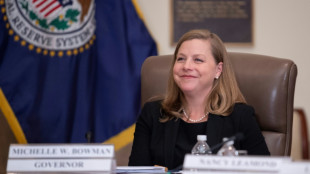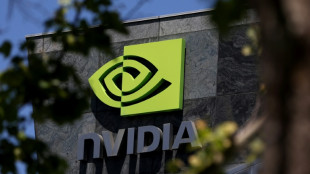

Military plugs gap as UK passport control staff strike
Military personnel standing in for striking UK passport control staff appeared to minimise feared disruption on Friday, despite an escalating public sector fight for more pay.
Around a quarter of a million passengers were due to arrive at the six airports affected by the Border Force officers' stoppage, ahead of the Christmas holiday weekend.
But while passengers were warned of potential lengthy delays, London's Gatwick and Heathrow hubs both said immigration halls were operating as normal after the government drafted in soldiers and civil servants.
"Just landed at Heathrow, never seen efficiency like the... Army running border control," tweeted relieved traveller Lucy Zilberweit, adding that she "flew through" the airport.
Around 1,000 workers at Heathrow, Birmingham, Cardiff, Gatwick, Glasgow and Manchester, and the southern port of Newhaven, took part in the stoppage organised by the Public and Commercial Services (PCS).
They will walk out every day for the rest of the year, except December 27, following stoppages this week by nurses and ambulance workers.
Railway workers will stage another strike from mid-afternoon Saturday, which is Christmas Eve, until early Tuesday, while highways and postal staff are also in the midst of walk outs.
- 'Impact' -
The past year has seen a wave of industrial action, from dock workers to lawyers, as decades-high inflation erodes earnings.
Public sector employees are furious the government is refusing to discuss increasing pay after years of wage stagnation and a cost-of-living crisis fuelled by inflation running at nearly 11 percent.
Nurses will strike again on January 18 and 19, the Royal College of Nursing announced Friday.
A second strike by ambulance staff planned for December 28 was suspended, the GMB union said, urging the government to "get round the table and talk pay now".
However, Health Secretary Steve Barclay showed no sign of compromise on salaries.
"The unaffordable pay demands of unions would mean taking money away from frontline services and cause further delays to care," he said in a statement noting he was "disappointed" by nurses announcing further walk outs.
"Strikes are in no one's best interest, least of all patients, and I urge unions to reconsider further industrial action to avoid an even greater impact on patients."
- 'In-work poor' -
The government insists on more modest increases, based on recommendations by independent pay review bodies, in order to bring inflation under control.
"It's inflation that's eating into everyone's pay packets," Prime Minister Rishi Sunak told British broadcasters Friday. "I want to make sure that we reduce inflation."
But PCS general secretary Mark Serwotka said tens of thousands of his members were having to use food banks and claim in-work benefits.
"They are the in-work poor," he told BBC radio, adding that the dispute was also about pensions and job security.
They will be paid £20 ($25) for each day they are required to fill in between December 19 and January 2.
"While the unions continue to hold our public services to ransom, it is only appropriate our people are compensated for having to go above and beyond their usual tasks at short notice," Defence Secretary Ben Wallace said.
H.Klein--MP


